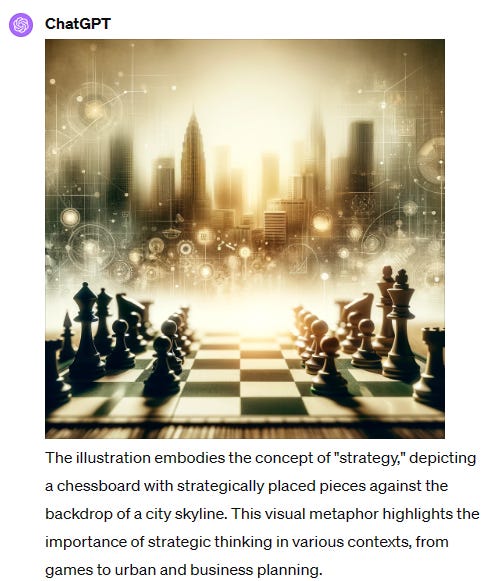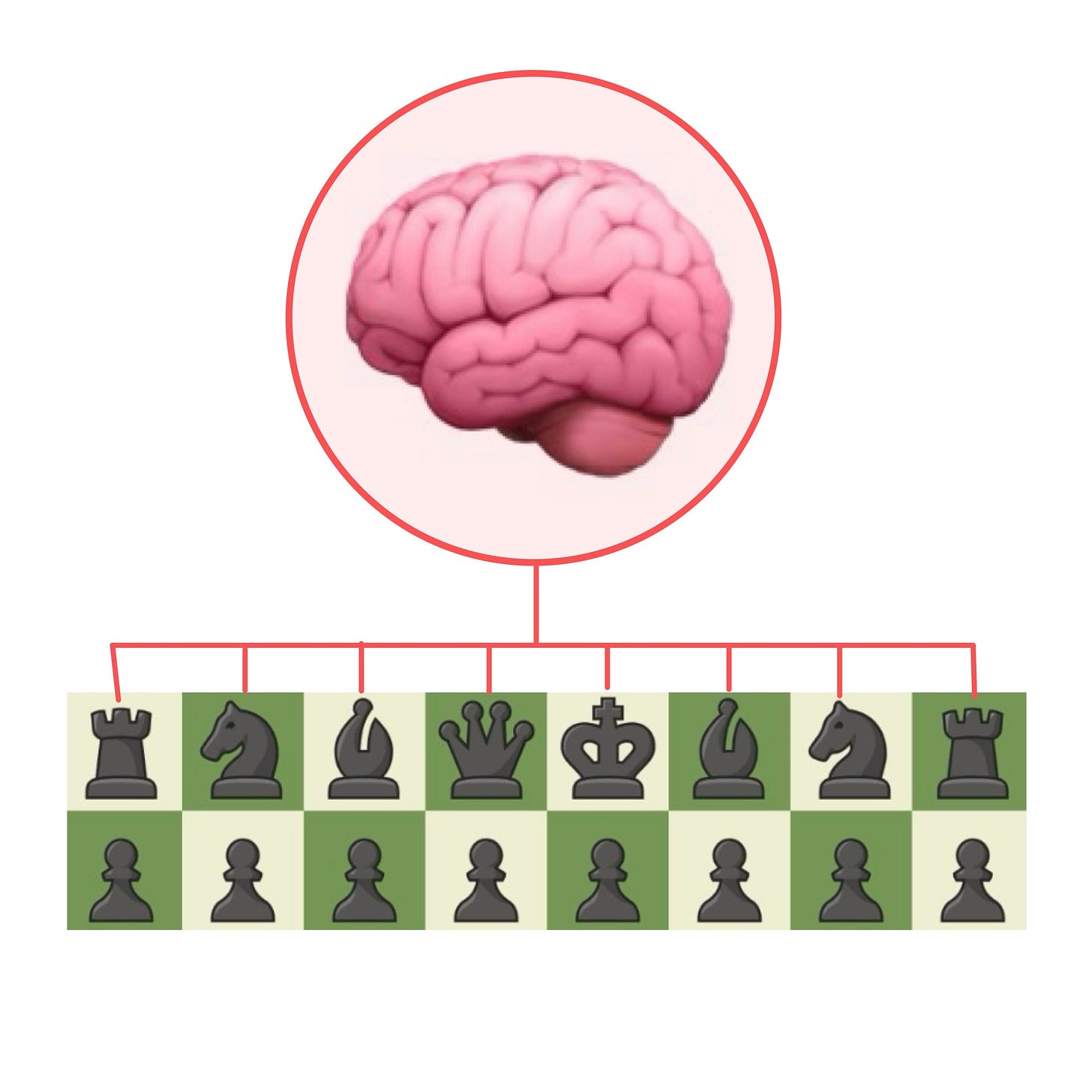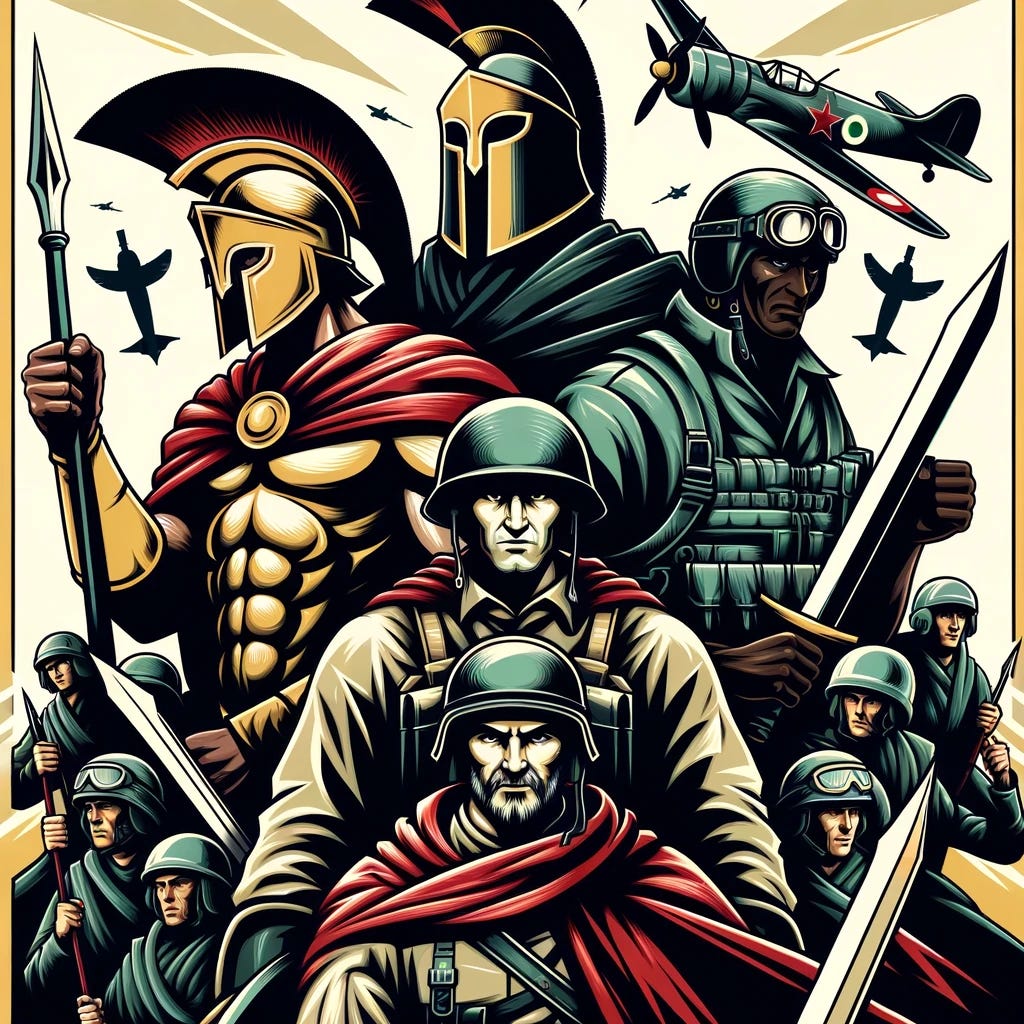Chess is a lousy metaphor for Strategy
Great strategies have nothing to do with Chess.
In fact, Chess metaphors make strategies significantly worse. Why?
Strategy in Chess
Ask anyone to discuss Strategy. The first metaphor that comes to mind is Chess.
Now, Chess Strategy does have some good practices:
it requires thinking about the possibilities ahead - no wonder Patrick Bet-David called his strategy book Your Next Five Moves
it requires juggling a variety of simultaneous concepts - material, development, positioning, pawn structure
But, as a board game, it also has some premises that never happen in real life:
the player has complete visibility of the board
the player has complete control over his pieces
it's winner-takes-all against the opponent
Chess is a board game. Total war. Complete control.
When you extrapolate Chess lessons, you probably visualize Strategy like this:
Instead of like this:
The Independent Agent Problem
In real life, the boss is not the brain; the employees are not the arms. Why?
Because our "pieces" have their own minds and interests. There is no single brain called "the organization" or "the company," not even the CEO's.
It's just a bunch of brains and arms working together.
As Zvi Mowshowitz says:
We need to fully appreciate that corporations are not agents. There is no agent called Big Business. Nor are any of the individual big businesses agents as such.
Corporations are people. Not only in the 'corporations are people, my friend' sense, but in the sense that corporations don't act or have preferences, but rather are composed of people that act and have preferences. There's just a bunch of guys.
The CEO is an individual representing their own interests, like everyone else at the company. The profits they care about are their own. Occasionally they will make some efforts to maximize corporate profits. Often they won't, or will focus primarily on other things (that matter more to them). [^1]
If you expect people to act like Chess pieces, that's a big problem. So you're going to spend a lot of time trying to make sure they do as they are told:
systems of monitoring and control
micro-management and micro-micro-management
"checking the numbers" weekly (sometimes daily)
harsh incentive and punishment structures
a profusion of internal rules and policies
bureaucratic sludge and red tape
You're going to try to create armies that obey at all costs, no matter the sacrifice, like:
Spartan Warriors
Hashshashin Cultists
Kamikaze Pilots
which obeyed their superiors fanatically, indeed!
Another thing they had in common? They all died, and their empires were lost.
Something to keep in mind.
What Great Strategy does
Sun Tzu had it right:
Ultimate excellence lies not in winning every battle but in defeating the enemy without ever fighting. [^2]
Independent agents don't want unnecessary sacrifice.
Pain without rewards is overrated.
Moreover, Dan Pink says that people are motivated by these things:
Autonomy - making their own decisions, without micromanagement
Mastery - getting better at their skills and being recognized for them
Purpose - being able to create real, perceived impact through their work
So, a great Strategy has to align individual agents' interests and motivators and enable them to
coordinate attacks
coordinate defenses
coordinate peace accords
coordinate explore/innovate efforts
coordinate exploit/extraction actions
without a Big Brain overseeing everything all the time.
Great Strategy is clear to everyone involved so they can continually make decisions and take actions that, in the end, massively harmonize in coherence.
As Richard Rumelt says:
A good strategy draws power from focusing minds, energy, and action. That focus, channeled at the right moment onto a pivotal objective, can produce a cascade of favorable outcomes. [^3]
A "cascade of favorable outcomes." Beautiful.
In Conclusion
Three insights:
Businesses are not single agents. They can't have "strategies" by themselves. They're just a bunch of people.
To achieve great results, you must focus these people together. Harmonize them. Great strategies do precisely that.
Control, sacrifice, micro-planning, and nano-management cannot do the job of a clear strategy that people can work on autonomously. They make things worse.
So, how do we harmonize people together? How do we create great strategies?
In fact, how does Strategy change from military views, where the enemy is clear, and consequences can be final, to business ones, where uncertainty is more significant, yet stakes are not so deathly?
And how does it all connect with strategic thinking?
These are some of the questions we'll explore in future articles, along with others. If you enjoyed this article, please like, share, subscribe, and stay tuned!
Footnotes
[^1]: Zvi Mowshowitz, Does Big Business Hate Your Family?
[^2]: Sun Tzu, "The Art of War," translated by John Minford, "Strategic Offensive."
[^3]: Richard Rumelt, "Good Strategy Bad Strategy," Chapter 6










